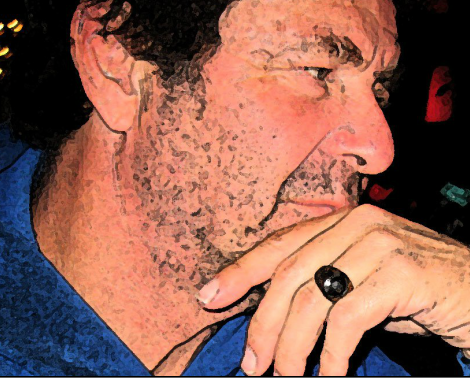Big fun at Cuesta College
March 17, 2024

Dell Franklin,
By DELL FRANKLIN
Editor’s Note: The following series, “Life in Radically Gentrifying Cayucos by the Sea,” to be posted biweekly includes the notes, thoughts, and opinions of an original American voice: author Dell Franklin.
Franklin’s memoir, “The ballplayer’s Son” is currently on Amazon.
At the Film/TV/Electronic Media Class at Cuesta College, where students are learning a craft that will someday place them in newsrooms, entertainment studios and yes, podcasts, there was a palpable feeling of dedication, passion, camaraderie and, yes, fun as I awaited my turn as a guest discussing my two books, “Life On The Mississippi, 1969,” and “The Ball Player’s Son,” both of which were propped up on the wide desk to my left as I settled in to be interviewed by longtime sports department representative Pete Schuler.
I was a last minute fill-in and third guest after two interviews with Cuesta women and men basketball players. I was an odd selection for sure, but perhaps I could offer these students and those who will watch this podcast a totally different perspective— an 80-year-old geezer talking about his journey and his books.
I felt, as I told Pete, that young people preparing to tackle the world with a feeling of anticipation and excitement, but who have not really been anywhere, might be interested in a person who at around their same age itched and ached to partake in a year or so of hitchhiking across America as a vagabond, working at odd jobs, and ending up as storekeeper on the last paddlewheel steamboat carrying passengers up and down the Mississippi and Ohio rivers—the Delta Queen.
Might they relate to documented wanderlust during a different yet still volatile time in America?
I also thought that because one of the books was involved deeply in racism, and the baseball book related some antisemitism, that there also might be awareness of situations that still haunt us today.
Before sitting down and being miked up, I was thrilled at the way these young people worked and conducted themselves, how professional they were, and also how joyous they seemed performing their craft.
Pete did a superb job guiding me through the interview, knowing what I wanted to say and what I wanted college students of today, in an affluent and mostly white area, to hear.
I wanted them to know what it was like for me when I was about their age, as the material in both books recalls my life growing up as a big league ballplayer’s son, of being a legitimate major league prospect offered money to play, and somehow tossing it all away in a rather traumatic decision to become a writer in the style of Jack Kerouac’s “On The Road.”
I wanted them to realize we have dreams and desires but it’s not so simple, that we’re young and not exactly prepared for the deeply emotional setbacks and failures and disillusion that might lay before us like a minefield, and that at such an age, we really don’t know exactly what we’re doing and are extremely vulnerable.
But what I realized I was doing afterwards was talking about passion—with passion.
When I finished, the bright lights still upon me, I heard clapping from those in the studio and back in the room where banks of glowing, blinking technology were controlled by other students and their professor. I saw a lot of smiling faces among these young people. Evidently, what I’d said appealed to them, because I soon found myself surrounded by several of these students.
I emphasized some of the things I’d said. I mentioned that in the 60s and ’70s there was this feeling of freedom, of wildness, that you didn’t have to immediately climb into the meat grinder of working to survive and thrive for some 40 years, but could stick your thumb out and go most anywhere. And although there was some fear involved due to every day volatility from the Vietnam war and the civil rights movement, I was perhaps too dumb to realize these fears and also so excited about walking around America and breathing it all in, seeing this part and that part up close, searching every crevice of the country, and meeting the people and, like Kerouac, gaining the experience to write about it.
I wanted young college students of this era, of this generation, to feel what I felt. I wanted them to know that what existed in the deep south as a storekeeper on a riverboat still existed, and that my story was about the poorest, most unprepared black people in America trying to compete in a demanding economic society, and that their envy and distrust and bitterness and contempt for me wasn’t really about me as I took on one of the best, higher paying low level job aboard, but that I was, to them, white. entitled, and privileged.
Talking to these kids, watching their faces, listening to them, proved enlightening, illuminating, and I suddenly felt that I have missed out on too much just hanging out with mostly people around my age, and wondered if we wouldn’t all be better off if we spent more time with people other than those our age, and to realize it is our young people’s world. They are hopeful, they are ambitious, they are energized, they are connected to each other. It is their generation.
Just from being around them, I was on a mysterious high. And thankful for it.






The comments below represent the opinion of the writer and do not represent the views or policies of CalCoastNews.com. Please address the Policies, events and arguments, not the person. Constructive debate is good; mockery, taunting, and name calling is not. Comment Guidelines